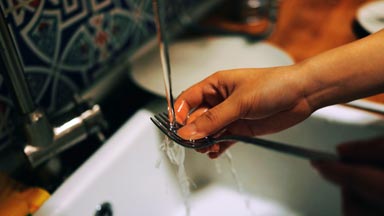Taking A Water Sample For Testing | Water Sample Test Lab

As the most precious resource in the world, our water must be clean and feasible to use, whether to bathe or drink.
The disaster of Flint, Michigan shows why clean water is needed and how not to let pollution and contamination drive a crisis in any country.
In a state where water may be contaminated, it must be sampled and sent to a water testing lab to ensure safety. The process of taking water samples is easy for anyone to do and helps professionals in determining how contaminated the water may be.
At the sink, you first need to remove the aerator, which is what adds oxygen to the water. Then, the faucet needs to be disinfected with bleach or with a flame and let the water run for several minutes. As the stream takes place, pick up samples of the water in a bottle or cup and don’t touch the inside of it. Store the samples in the fridge and send it to a water testing laboratory within 48 hours. There, the professionals can properly do their testing to find any chemicals, pesticides, bacteria, or contents of drugs (mainly pharmaceutical) in the water.
Preparation for all of this is very necessary and not so simple. Before collecting any water, make sure that there’s no leakage from the sink. The bottles to collect them should be sterilized so what’s in it doesn’t mix in with the water. Label the bottles and keep it cold, which is why it must be put in the fridge before you send water samples to a test lab. Research any regulation levels with bottles or water content on a state basis as regulation varies with testing. Document everything that is done. One good way to determine all of this is using measurements like such as pH and temperature.
Water safety is necessary for our world and any contamination of it will cause peril to a major source of the population. It is easy, even in the first world, to see the water supply become accidentally harmful and not good to drink or cook with. People have resorted to bottled water out of safety or even use those special filters to get out the basic contaminants. More serious things can infect the water that those filters can’t stop from flowing out. If there’s a problem with the water, get samples from them, follow procedures, and send them to a water analysis lab.
Located in Coopersville, MI, Alliance Analytical Laboratories is a water testing lab in Michigan with national and international capabilities. Contact us today to request a quote or call us directly at (616) 837-7670.

 Microbiology
Microbiology